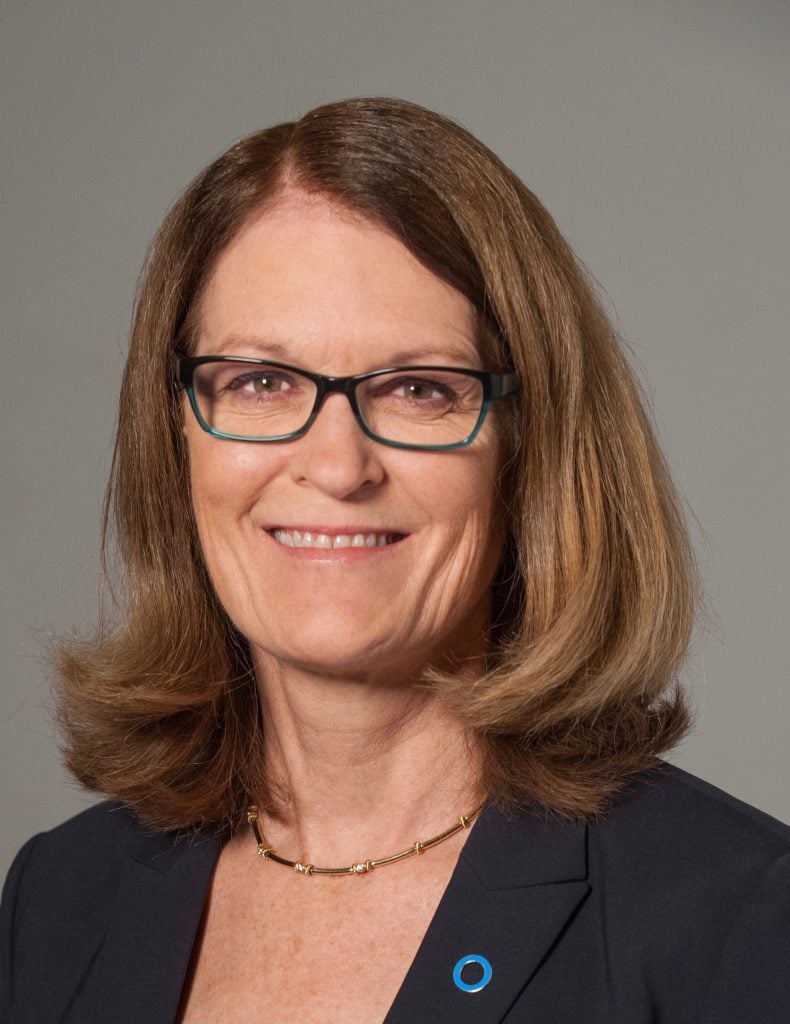
Although my presidential term has been 15 months, instead of the typical 12 months (due to ENDO moving from March to June this year), I have to say that this year has flown by. And I couldn’t be prouder and more pleased with how we have created opportunities out of challenges and how we have risen to the occasion.
The past two years have been anything but ordinary, with everyone’s lives disrupted due to the pandemic. We had to cancel ENDO 2020 just a few weeks before its start date and developed our first virtual meeting a few months later. We were able to plan a fully virtual ENDO 2021 the following year, which was a great success. We have learned from adversity and have been flexible and open to adapt to these new situations. This year we will be holding our first hybrid annual meeting ever and I am extremely pleased with the amazing program that our Annual Meeting Steering Committee (AMSC) members have put together. Many of us are very much looking forward to getting together in person to seeing our colleagues and friends. At the same time, we understand that some of you are still unable to travel and hope you will be able to benefit from attending a virtual ENDO. I want to take this opportunity to thank our AMSC chairs Steve Hammes, Scott Dehm, Lauren Fishbein, and Bulent Yildiz for their leadership, creativity, and commitment to develop an outstanding program.
I want to acknowledge the dedication and creativity of our members, who in strong partnership with our talented staff, have done remarkable things and produced amazing results.
There are other areas that I want to briefly highlight as our great successes this past year. In the advocacy area, we have made great strides by having virtual Hill visits and thereby, benefiting from having a much larger number of members participating in these visits. We continue to focus on our advocacy agenda advocating for increased NIH research funding, reduction in the prevalence of diabetes and obesity, protecting access to care for women and transgender patients, ensuring access to adequate, affordable healthcare, and improved regulation of endocrine-disrupting chemicals (EDCs), just to name a few areas.
2021 marked the 100th anniversary of the discovery of insulin and how it transformed diabetes from a fatal disease to a chronic condition. We spent 2021 commemorating this important centennial with video interviews with diabetes experts and webinars delving into important issues around insulin and diabetes. We continue to advocate for access to affordable insulin products and to establish better diabetes management practices and guidelines.
We have recently launched a new open access journal: JCEM Case Reports, publishing reports on clinical cases and clinical problem solving from across the field of endocrinology. I am pleased to announce that the editor-in-chief is William Young, MD, a past president and one of the most engaged members in our Society. I am certain that under his leadership the journal will have a great impact.
For those wishing to publish their research, members of the Endocrine Society benefit from waived page charges for publication in Endocrinology.
In the education front, we have enhanced our Center for Learning, our online repository for on-demand education, for a more streamlined, productive, state-of-the-art online learning environment that is easier to use. You can gain access to a variety of resources from podcasts and webinars, to our premier case-based products including Endocrine Self-Assessment Program (ESAP™), Pediatric ESAP™, and Endocrine Board Review.
Our commitment to diversity, equity and inclusion continues through several of our programs. The Future Leaders Advancing Research in Endocrinology (FLARE) program is geared towards basic science, clinical research trainees, and junior faculty from underrepresented minority communities who have demonstrated achievement in endocrine research. FLARE program components provide structured leadership development and in-depth, hands-on training in topics ranging from grantsmanship to lab management. Earlier this year, we launched the Excellence in Clinical Endocrinology Leadership (ExCEL) program, which offers comprehensive leadership training and mentorship to early-career physicians of communities underrepresented in medicine and science. Both programs are aimed to build leadership skills, explore opportunities for advancement, and expand your network of peers and colleagues.
Although there are many other achievements that I am not mentioning, I want to make sure I thank and acknowledge all those who have contributed to our success. I must begin by acknowledging our Executive Committee. Our presidential officers, Gary Hammer, immediate past president, and Ursula Kaiser, president-elect, as well as Dolores Shoback, secretary-treasurer, and Jeff Boord, secretary treasurer-elect, who have been my advisors, sounding board, and friends. I also want to thank our Board members for their commitment, dedication, and thoughtful engagement.
This has been an exceptional year as we continue to serve as global ambassadors for endocrine science and care. I feel honored and humbled to have been given the opportunity to serve this outstanding organization.
I want to thank our new CEO, Kate Fryer, for her partnership. Kate has provided the stability, support, and leadership that we needed to move our priorities forward. And last but most importantly, I want to acknowledge the dedication and creativity of our members, who in strong partnership with our talented staff, have done remarkable things and produced amazing results. And last, but not least, we all owe a great debt of gratitude to the staff of the Endocrine Society, who have persevered under the many challenges of the past two years.
In closing, this has been an exceptional year as we continue to serve as global ambassadors for endocrine science and care. I feel honored and humbled to have been given the opportunity to serve this outstanding organization. Thank you for your trust and continued engagement.

